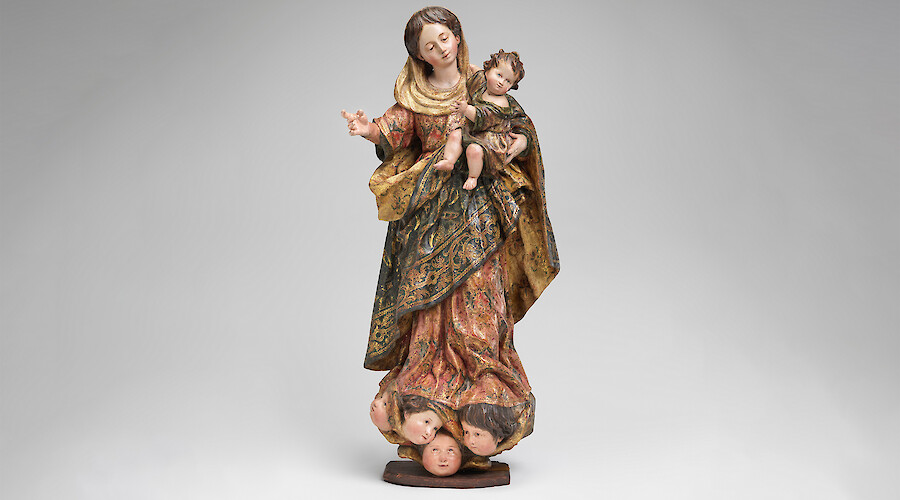Gallery Talk — Women Artists New to the National Gallery: Luisa Roldán

In celebration of Women’s History Month, the National Gallery of Art presents a gallery talk featuring an artwork by Spanish artist Luisa Roldán.
The National Gallery of Art’s Focus: The Collection program consists of a free series of talks by museum educators and specialists focused on specific aspects of the Gallery’s permanent collection or special exhibitions. These programs are geared to an adult audience.
This session, led by senior lecturer David Gariff, will focus on two new acquisitions to the collection: Luisa Roldán’s polychrome sculpture Virgin and Child and Lavinia Fontanta’s Portrait of Lucia Bonasoni Garzoni.
Virgin and Child by Luisa Roldán
This small carved wood and painted statue by Luisa Roldán is the first work by a woman sculptor from before c. 1850 to enter the National Gallery’s collection. Widely accepted as a work by Roldán on stylistic grounds, it shares close similarities with a range of sculptures that are widely acknowledged to be by her.
Born in Seville, Roldán was the daughter of Pedro Roldán, one of the city’s most accomplished sculptors. Her introduction to sculpture most likely came from Pedro, with whom she worked in close partnership. At the age of 19, she left home to marry one of her father’s studio assistants, with whom she set up a workshop and began undertaking commissions. Some of her earliest works, identifiable by style, include various life-size figures in painted wood for altarpieces in Seville and processional floats that reflect but differ from her father’s style.
In 1688 Roldán and her husband moved to Madrid, likely in expectation of an appointment at the court of King Carlos II. Eventually she was awarded the royal title of escultora de cámara, which did not prove especially lucrative. She turned to specializing in painted terracotta scenes. When Felipe V ascended to the throne in 1701, she was reappointed to the Spanish court. Lauded for her accomplishments as a sculptor, she nevertheless died destitute, unable to pay for a funeral. On the day she died, she received recognition as an Accademica di merito from the Accademia di San Luca in Rome.